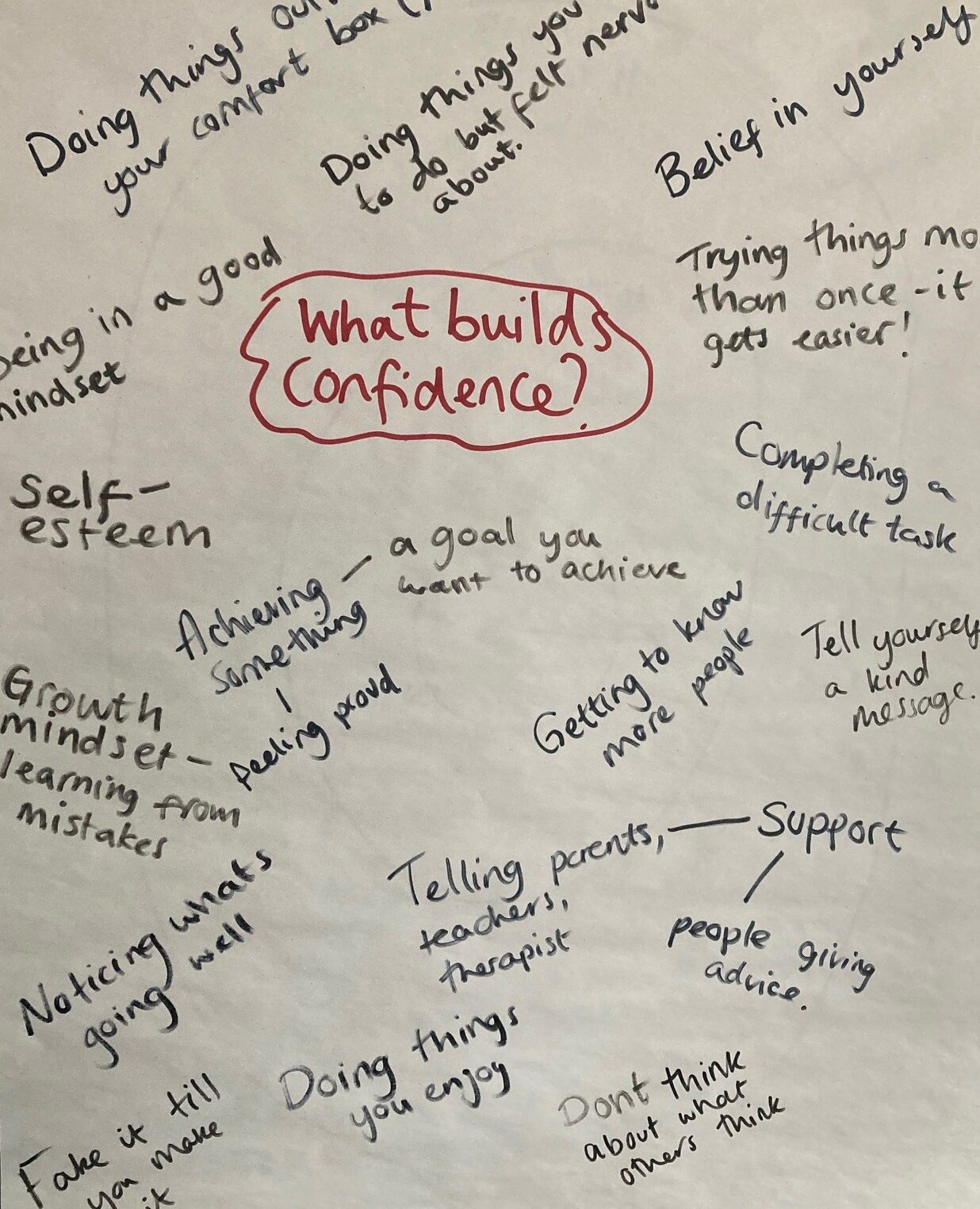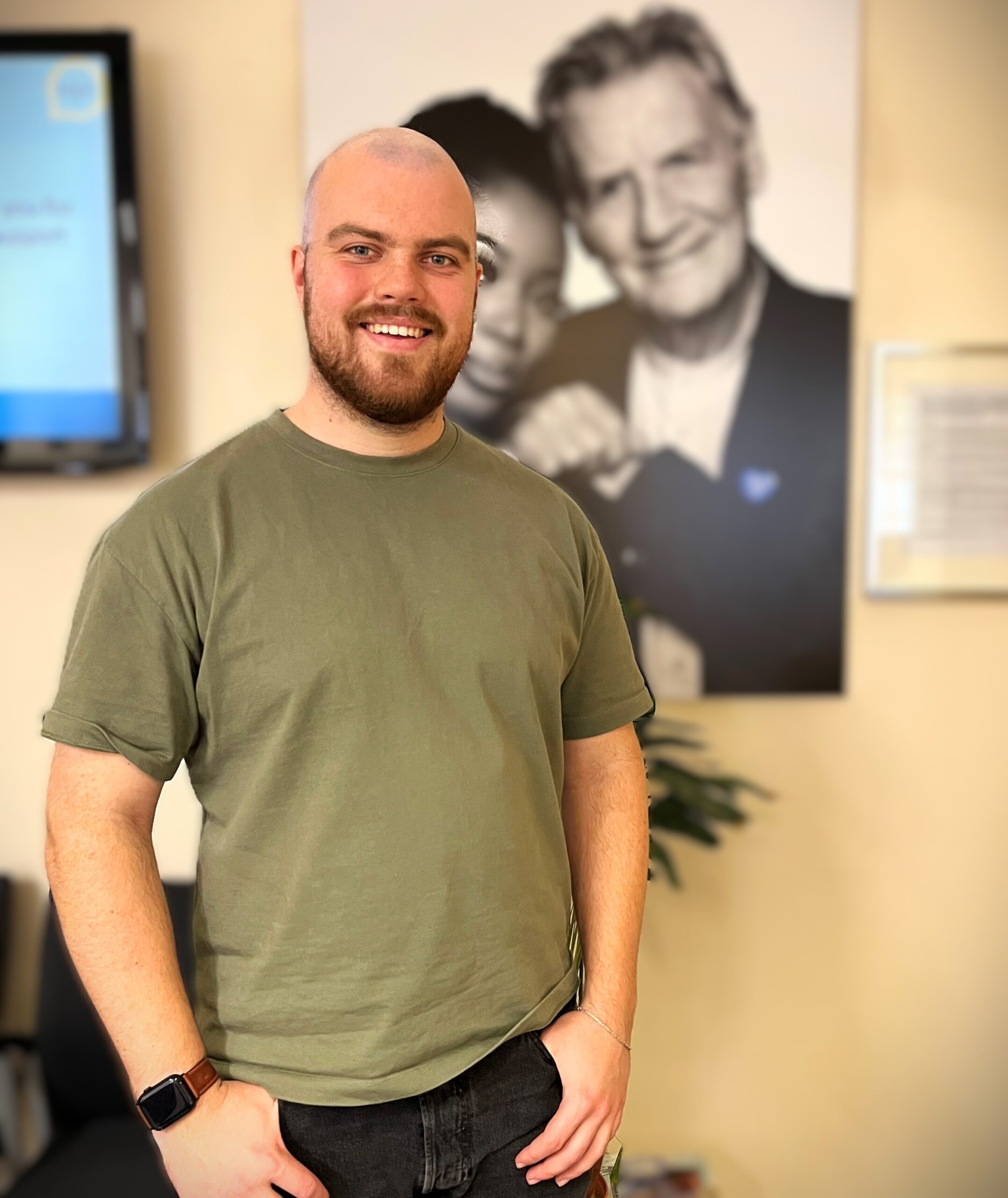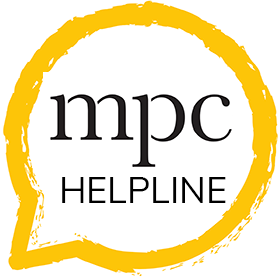Your stories

Aribah's story
My stammer has not disappeared and still appears at times, but it no longer defines me. Living alongside it has taught me resilience, empathy, and patience which I use every day in my training. It has also given me a deeper understanding of communication, helping me connect with patients and colleagues in a meaningful way.
When I was younger, my stammer felt like a wall I could never climb. Speaking in class, reading aloud or even answering my name in the register could leave me frozen with fear. I struggled every day, feeling frustrated, anxious and sometimes invisible because I could not express myself as I wanted to. I dreamed of becoming a mental health nurse, but for a long time I believed it was impossible. How could I follow a career that relied on communication when speaking was so difficult for me.
I am now in my second year of training to become a mental health nurse. Communication is at the heart of everything in this role, and every day I am learning to support patients, work closely with families, and contribute as part of a multidisciplinary team that includes consultants, doctors, psychologists, occupational therapists, and other healthcare professionals. I regularly give handovers and have taken part in management rounds in front of senior staff, including deputy lead nurses. These are moments I once feared, but now I face them with confidence, showing that my stammer does not limit what I can achieve.
To anyone who stammers, I want you to remember this: your stammer is part of you, but it does not define you. You can still follow your dreams, whatever they are. Facing your stammer, acknowledging it as the elephant in the room, gives you the courage to use your voice, show your strengths, and achieve more than you ever thought possible.
~ Aribah – 2nd year student mental health nurse (living alongside my stammer and following my dream). Michael Palin Centre client.

Charlie, Jacqui and family – their story
For Charlie his confidence was growing he started to find his voice and speak more openly and interact in conversations more. This was a huge turning point in Charlie’s life. He had spent a lifetime covering it up and was now realising the condition can be normalised and this was helping him eliminate the stress and mental pressure it had on him at school and in social situations.
I am one proud mum and we as a family are indebted to the Michael Palin Centre and the amazing therapists who made such an impact on Charlie’s life, transforming his journey at one of the most important times in his life and giving him the confidence to believe in himself and follow his dreams.
Charlie developed a stammer at the age of three and it was at one of his sessions at the local speech and language that I learnt of the brilliant work they do to help children. When Charlie was a teenager, I reached out to the MPC and applied for a place on the course for 15-18 years.
How did Charlie find the group?
Charlie joined apprehensive and nervous but as each day went by, he realised that he was in a safe environment to talk about his stammer and relate to other children’s experiences. One profound memory for Charlie was one day in their groups their therapists took them out in the street and asked directions to the station with a stranger. The therapist stammered, and the person answered whilst waiting for them to get their words out. This powerful task simply normalised the stammer and made Charlie realise that people will not dismiss you or make fun of you.
What was your experience as a parent attending the group?
I cannot tell you how amazing this was to speak to other parents who had the same challenges in their children’s lives. One task was for us to try and stammer to another parent we did not know. We were shown how to do this, it was so difficult and exhausting not only to stammer but to talk to a stranger.
Each afternoon after the session it broke my heart to hear Charlie talk about his feelings and how difficult it was for him to navigate his stammer in his daily life.
What changed for your family as a result of group therapy?
As a family, we told everyone where we had been. I put a post on Facebook and lots of family and friends reached out to me to say they never knew Charlie had a stammer. We had to normalise it we were no longer going to hide it.
We reinforced with his older brothers to wait for him in a conversation, let him speak do not rush him. We slowed down our speech, we spoke about stammering openly to our friends.
I emailed Charlie’s school and spoke to the SEN and asked them to write to Charlie’s GCSE boards and ask for an extra 25% of time which he was legally entitled to. Suddenly Charlie’s world was changing.
What changed for Charlie?
For Charlie his confidence was growing he started to find his voice and speak more openly and interact in conversations more. This was a huge turning point in Charlie’s life. He had spent a lifetime covering it up and was now realising the condition can be normalised and this was helping him eliminate the stress and mental pressure it had on him at school and in social situations.
The family saw him blossom over that year, returning to the MPC for the four follow up group sessions, talking about his progress in group sessions. Charlie also passed his nine GCSEs with flying colours, and he gained a place in a prestigious sixth form school to study his A levels. I never thought I would see Charlie plan to go to university, but he is planning to study Economics at Loughborough University.
Thank you so much Jacqui, Charlie and family

Lewis' story
If I could give my younger self one piece of advice, it would be this: you are not alone and asking for help is one of the bravest, most important things you can do. The MPC did not just help me find my voice; it helped me find pride in who I am.”
My journey with a stammer began as soon as I could speak. Growing up, I felt all the stereotypical struggles that many people who stammer know all too well: the hesitation before speaking, the frustration when words wouldn’t come out, the fear of being misunderstood, and the anxiety around social situations. Every conversation felt like a challenge, and I often avoided speaking altogether. Over the years, I sometimes hid my true self, afraid that my stammer would define how others saw me. It took years of convincing by my parents before I finally made the step to go to therapy. Looking back, it was the turning point I did not know I needed.
When I was 17, I had the opportunity to attend a two-week intensive group therapy programme at the Michael Palin Centre in London. The support and guidance I received there helped me express my real self more freely and shaped me into the person I am today.
One of the most powerful things I experienced was the sense of community. For the first time, I was surrounded by people who truly understood. I learned that there was support out there and I was not alone. I gained confidence in myself and began to open up. The experience helped shift my mindset. I stopped focusing on how I thought others perceived my speech and started to see that people value your behaviour and actions far more than your fluency.
The course helped me realise that stammering does not limit you. In fact, it can bring strengths. It has made me more understanding, emotionally intelligent, and self-aware. These are qualities I do not think I would have developed in the same way otherwise. It is not a flaw. It is a superpower.
Since attending the MPC, I have gone on to achieve things I once did not think were possible. I completed a master’s degree in Biomedical Science and I now work at AstraZeneca, where I am part of the Global Graduate Operations Programme. This role involves constant communication, presentations, and collaboration. A big part of what motivates me in my career is working with people and supporting them by helping provide life-changing medicines to patients. I have a real passion for helping and supporting people, whether that is through my work or in other parts of life.
Outside of work, I have followed my passion for sport and have had the honour of representing England in bowls. I now also lead the junior team for Bowls Lancashire, something I am really proud of. Not just for the sporting side but because I know how valuable it is to mentor and support young people, just as I was supported.
To anyone going through a similar journey, embrace it. Speak with confidence. And know that your stammer does not make you any less, it makes you more. Because in the end, it is not a flaw. It is a superpower.
We’re so grateful to Lewis – for sharing his story and Lewis ran the Run Tatton Half Marathon, raising over £2,500 for the Michael Palin Centre. “Each place on the MPC therapy programme costs £5,800 and I wanted to help make sure others could have access to the same life-changing experience I had.”
~Lewis

Joel's story
Why did you come to the MPC? What impact was stammering having on your life?
I came to the MPC because I felt that my stammer was an obstacle to reaching my full potential.
I couldn’t maintain eye contact and I couldn’t talk to people at large distances. I was very self-conscious about my stammer.
I wanted to meet other people that stammered. Growing up in Uganda, you do not run into many people that stammer so I was always left with a feeling that no one fully understood my struggle. Prior to attending the 2- week intensive course at the MPC, I had been working with my therapist in Uganda for about a year. In our sessions, we focused on breathing and relaxing as a conduit to alleviate my stammer. That year was the first time I received speech therapy. I was 17 years at the time.
How did therapy at the MPC help?
One of the reasons that I joined the MPC was because I couldn’t talk to people at long distances because I stammered too much…well fast forward 7 years and I found myself lecturing an aerospace engineering class in front of about 100 students when I was in graduate school at UCLA. 17-year-old Joel could never have in his wildest dreams seen that he could one day be standing in front of that many people explaining the complexities of supersonic flow. 17-year-old Joel was too shy to even order food through a drive through where no one could see him.
The teaching apprenticeship at UCLA helped me land an internship at NASA Langley Research Center where I researched about landing on Mars using carbon dioxide in its atmosphere as an oxidizer.
I am currently a propulsion(aerospace) engineer at Northrop Grumman in Florida, USA.
The strategies from therapy that I still use today are maintaining eye contact, staying in my stammer until the tension goes down and a little of the flowing technique. Funny story about the flowing and staying in stammer technique. I used it at my sister’s wedding in 2022. I gave 2 speeches at 2 separate occasions of my sister’s wedding. At the beginning of both speeches, I sang. My singing caught everyone off-guard, I do not know whether it was the quality of my voice or the fact that I was singing but within no time they all joined in. The singing was meant to reduce the tension for myself and flow into my speech. Now I think that I might start all my speeches with a song now!
What did the coming to the MPC mean for you?
My time at the MPC truly changed my life, from the friendships that I made to the techniques that I learnt from the amazing therapists.
2 months after completing the 2-week course at the MPC I wrote an email to my speech therapist in Uganda: “The camp was one of the best things that has ever happened to me as well as one of the best decisions I have ever made :). I am so glad I listened to you, it was absolutely fantastic. I loved every second of it. It was absolutely life- changing for me.”
What advice would you give to others thinking about therapy at the MPC?
One piece of advice I would give my younger self would be that this therapy is going to change your life. Do not be shy young Joel, stammer freely and unapologetically, be your complete yourself, because in that way, the therapists and the friends that you will meet at the camp can help you best. I wish I had known about the many resources that were out there for people that stammer.
Your stammer is a beautiful thing that makes you unique. It took me many years to realize this. It doesn’t define you, but it is one of the components that makes you this incredible human being.
When I was young, I tried so much to hide but now when it comes up, I absolutely embrace it. As you will see through your journey, sometimes it is better to lean into your stammer than hiding it.
One final thing – you are going on to do great things just like I have done, wishing you the absolute best!
~Joel

Tom's story
“…my stammer is a characteristic of me I carry with the same weight as my blue eyes, ginger beard or rather large shoe size – nothing more than something that makes me, me.”
My stammer presented itself around age 8. My parents remember my confusion and frustration at the difficulties I started facing in expressing myself how I wanted to.
Fast forward 16 years, I am 24 and my stammer is a characteristic of me I carry with the same weight as my blue eyes, ginger beard or rather large shoe size – nothing more than something that makes me, me.I remember in my school years finding an uncomfortable comfortableness with the idea that certain jobs or activities in life were just not going to be for me. Basically, any speaking heavy role; one that used the telephone often or required reading out loud might just be something I leave to people better ‘equipped’.
I have since taken up and thoroughly enjoyed roles that contain all of those activities. Bar tending in busy, loud environments; managing and briefing teams of staff to deliver the worlds more prestigious catering events and spending my life now as an accountant on video calls constantly, reading numbers off spreadsheets to explain complex financial problems. The exact opposite of what I expected of myself all those years ago.
“Stammering opened my eyes to the rich world of communication skills.”
Stammering opened my eyes to the rich world of communication skills. Fluency is a small part of a wide range of communication skills. Where fluency sometimes remains a challenge, my appreciation for all the other communication skills that sit alongside it has meant that I far surpass ‘getting by’ and instead I am consistently presented with evidence of my ability to communicate to a higher standard than lots of ‘fluent’ people. These skills were introduced to me at the Michael Palin Centre and remain the most influential skills I have learned.
Stammering for me became an asset, a superpower even that allowed me to really understand the mechanics of communication and from it to not only learn to communicate effectively but to learn to accept my stammer and see it in a positive light.
“…it is still important to be kind to myself and allow help in, in whatever form it takes.”
However, living with a stammer can still be a challenge and there is no shame in admitting such. I have so much evidence that I can do what I want to with or without a stammer, but sometimes I will ask my girlfriend to order coffee for me because it is still important to be kind to myself and allow help in, in whatever form it takes. I am only human, and I have a stammer. It’s just a part of me.
Sometimes you just need someone to talk to


Sometimes you just need someone to talk to
Our Helpline, 020 3316 8100, is open during office hours (9am-5pm) and voicemail messages can be left when the office is closed.
“I gained a fantastic grounding in CBT and the interweaving with other therapeutic tools and ways of working with all clients. I came to develop my CBT skills with a voice caseload. Although the course relates to stammering I can see that the skills and knowledge are easily transferable to my caseload.”
Become a Friend
Receive emails with news and information about the Centre's work, events, and fundraising.
Sign up